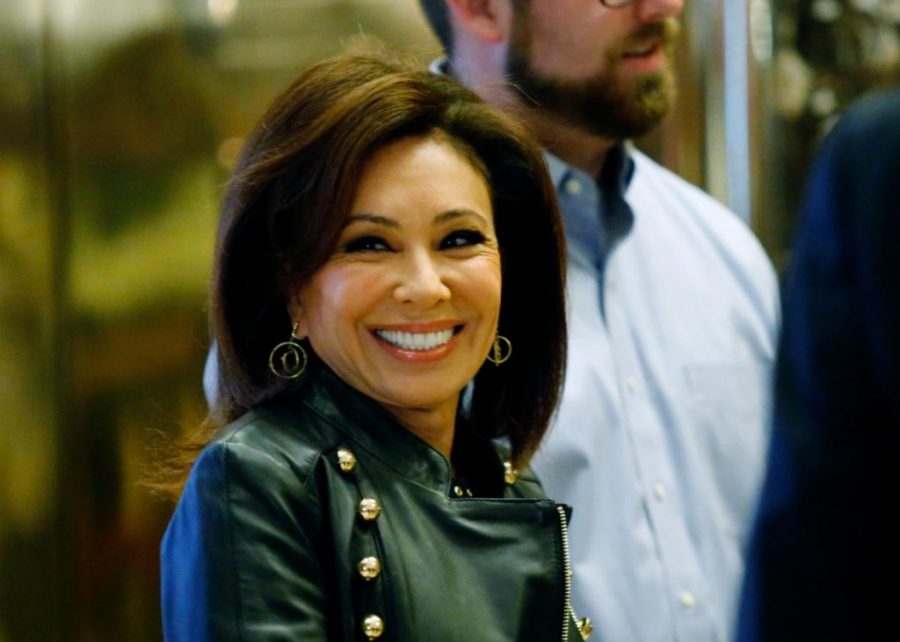Just hours before Jeanine Pirro, host of “Justice with Judge Jeanine,” appeared on Fox, president Trump tweeted indiscriminately to his 27 million followers last Saturday.
Watch @JudgeJeanine on @FoxNews tonight at 9:00 P.M.
— Donald J. Trump (@realDonaldTrump), March 25, 2017
Similar to Trump’s fiery brand of populism, Jeanine did not disappoint viewers. Rather, she began by demanding Speaker Paul Ryan’s resignation for the American Health Care Act’s catastrophic reveal in Congress. Absolving president Trump of guilt for the bill’s failure, Jeanine blamed Speaker Ryan for singlehandedly “embarrassing” the new administration.
“Paul Ryan needs to step down as speaker of the House. The reason? He failed to deliver the votes on his health care bill…the one that he had seven years to work on…the one that had to be pulled to prevent the embarrassment of not having enough votes to pass. Americans elected the one man they believed could do it…and you allow our president, in his first 100 days, to come out of the box like that?”
— Judge Jeanine Pirro, Justice with Judge Jeanine
Ouch.
Although Trump denied having prior knowledge about the segment, the incident was another significant blow to Speaker Ryan’s relationship with the president. Best known for his comprehensive understanding of the legislative process, Ryan has been a significant Congressional force since 1999. When Paul Ryan ran as Mitt Romney’s vice presidential nominee in 2012, he found nationwide fame. Despite losing to President Obama, Ryan continued to ascend in the House, eventually becoming Speaker three years later in 2015.
While Trump and Ryan both technically represent the Republican party, their views could not diverge more. Speaking to students at the Hinckley Institute, Mitt Romney delivered a scathing speech denouncing Trump’s campaign. Although it’s difficult to imagine that Ryan feels differently, he remained quiet for most of the primary. Instead, Ryan waited until June to endorse Trump—well after he became the Republican nominee.
Then, following the release of Trump’s obscene comments on “Access Hollywood,” Ryan joined the tide of Republicans distancing themselves from Trump. Displeased with the Speaker’s comments, Trump criticized Ryan for being a weak and ineffective leader. Conversely, a joint campaign appearance between the two was soon cancelled, with many speculating that Trump was uninvited. These immense tensions continued, until November 8, when Republicans regained control of Capitol Hill. Deep wounds were healed seemingly overnight, with Ryan later stating, “Donald Trump heard a voice out in this country that no one else heard. He connected in ways with people no one else did. He turned politics on its head.”
One can only imagine how painful that must’ve been for Speaker Ryan.
Aside from a few scuttles about bans on Muslim citizens and reform for the pharmaceutical industry, the two put their differences behind them for months. When president Trump assumed office on January 20, however, a symbolic timer was set for members in the House. Central to President Trump’s campaign was the promise to swiftly repeal and replace the Affordable Care Act, which had for years infuriated Republicans. Speaker Ryan was tasked with two assignments: initiate the repeal process through reconciliation and draft a replacement bill.
The American Health Care Act (AHCA) marked Congress’s first attempt to pass legislation under the new government. Ultimately, it failed to pass in the House after members of the far-right “Freedom Caucus” refused to support the bill. For Ryan, it was a severe blow to his credibility as Speaker of the House. For Trump, it was a missed opportunity to appeal to the broader Republican Party and a political disaster for his fledgling administration. How did Trump avoid being blamed outright for promising too much?
Easy—he publicly supported Paul Ryan and allowed others to eviscerate the Speaker’s credibility.
While it might be coincidental that Judge Jeanine condemned Paul Ryan on the same episode that Trump endorsed, there remains an obvious tension between the two leaders. Rather than relying on televised press conferences, Trump and Ryan have returned to subtle, more gentle loathing for each other.


